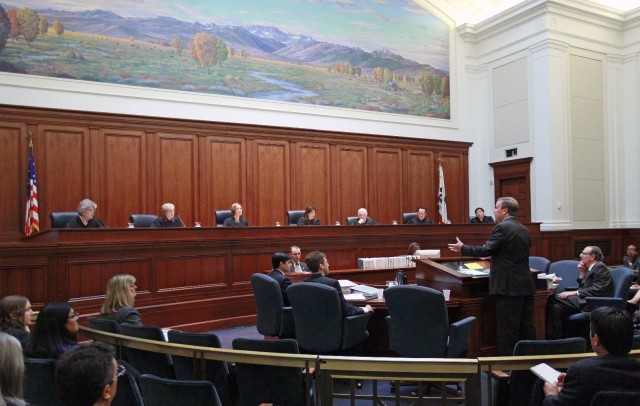
SAN FRANCISCO (AP and KQED) — The California Supreme Court has ruled in favor of Sergio Garcia, an undocumented immigrant whom the State Bar of California granted a license to practice law.
Garcia challenged a 1996 law that bars people living in the country illegally from receiving "professional licenses" from government agencies, or with the use of public funds, unless state lawmakers vote otherwise.
The court’s decision was unanimous and was authored by Chief Justice Tani Cantil-Sakauye. Justice Ming Chin also filed a short concurring opinion.
"We are very gratified that the State Supreme Court has found that discrimination is not the manner by which we decide to admit lawyers, whether by discriminating on their race their color or their immigration status," Jim Wagstaffe, who represented the State Bar in the case, told KQED's Scott Shafer.
Wagstaffe said that while Garcia is now free to be sworn in as a lawyer in the state and perform pro bono work and other legal duties, the decision doesn't address whether he can be paid for his work.